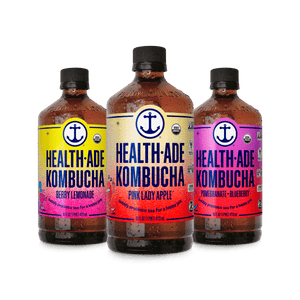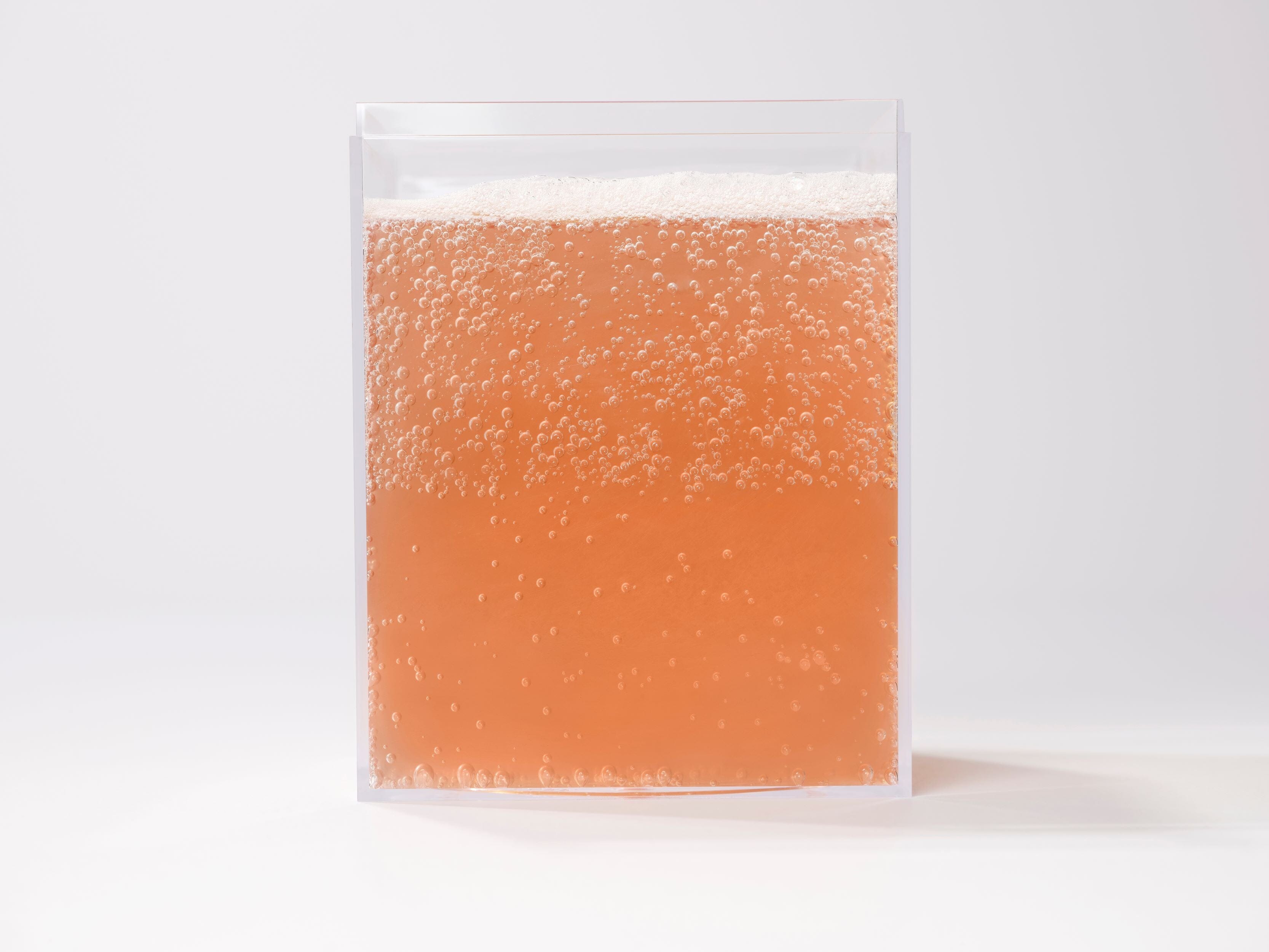
Kombucha | 12 Pack
Fan Favorite Variety Pack
One-time Purchase
49.95

Copied URL to clipboard!
Fermentation, though thousands of years old, doesn’t get much attention from us modern-day Americans. We rely heavily on refrigerators, freezers, and heavy processing for food preservation, and don’t have the strong cultural history of fermentation that exists in many other cultures across the globe.
But fermentation is a truly amazing process, and deserves some attention! And since we frequently get questions about various aspects of fermentation as it relates to kombucha, we thought we’d share more about how it works and why we love it!
Fermentation is a metabolic process in which microorganisms (yeast and bacteria) convert carbohydrates into organic acids and alcohol, usually under anaerobic conditions. Fermentation happens in every animal’s gastrointestinal tract, and has been widely used since the Neolithic era (aka 10,000 BC) to preserve food. There are two types of fermentation: alcoholic and lactic acid.
Alcoholic fermentation is used to make kombucha, wine, beer, spirits, vinegar, and more. Lactic acid fermentation is used to make yogurt, kefir, cheese, pickles, and kimchi.
Fermentation plays several important roles in human life:
Historically, bacteria from the soil or wild yeasts from the air have been the most common inoculants (initiators of fermentation). These organisms work on the medium (food being fermented) by converting carbohydrates to alcohol and acid, thereby preserving the food.
Let’s look at some examples.
With sauerkraut, bacteria found on the leaves of lettuce and cabbage would convert this fresh produce to sauerkraut without the use of any starter. Amazing!
In many grains and legumes, a naturally-occuring compound called phytic acid makes some parts of the grain indigestible, thereby limiting the nutrients that can be absorbed from these foods. “Souring” the grains, aka fermenting them, helps break down the phytic acid, enabling the body to absorb key minerals that would otherwise not be available. This process was probably discovered by accident. In fact, kombucha is fermented! Kombucha is made through a two-stage fermentation process.
Kombucha is fermented in a two-stage fermentation process. In the case of kombucha, a SCOBY (symbiotic culture of bacteria and yeast) is added to sweet tea, which jumpstarts two processes take place. First, alcoholic fermentation, during which the yeast convert sugar to alcohol under controlled conditions. After that, the bacteria get to work converting most of this alcohol into acetic, gluconic, glucuronic and other organic acids. During both of these processes, the yeast and bacteria feast and multiply, yielding an fermented kombucha beverage that is rich in a variety of microorganisms and healthy acids.
Those of us who live in urban areas have minimal exposure to bacteria - much less than we did during agricultural times when we were constantly interacting with soil and animals. This reduced exposure is due to many things: the use of chemicals and antibacterial products, less interaction with nature, the sterile nature of our modern food system and more. While these shifts have reduced the spread of harmful pathogens and disease in some contexts, they’ve also removed the helpful microorganisms from our diets and lives and left us with an environment that’s more sterile than we need. This in turn breeds other types of health problems.
One of the best ways to get more beneficial bugs into your life and body is by eating fermented foods. Not only can they boost the nutritional benefit you get from food and aid with digestion, they will also increase the variety of bugs that live in your gut and constantly work on your behalf.
Now, time for a kombucha!
VISIT SHOP